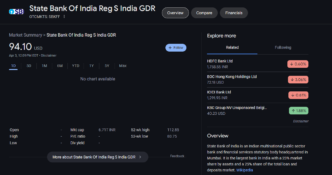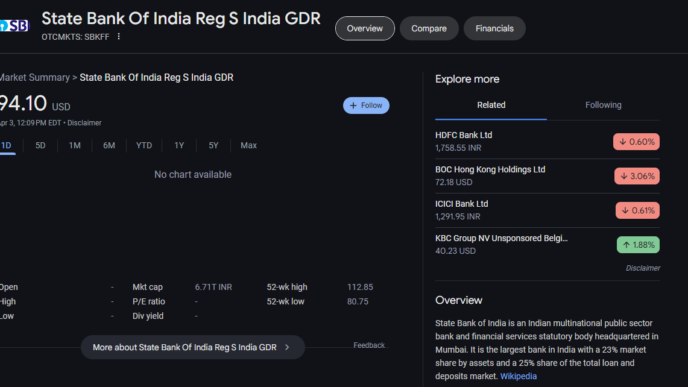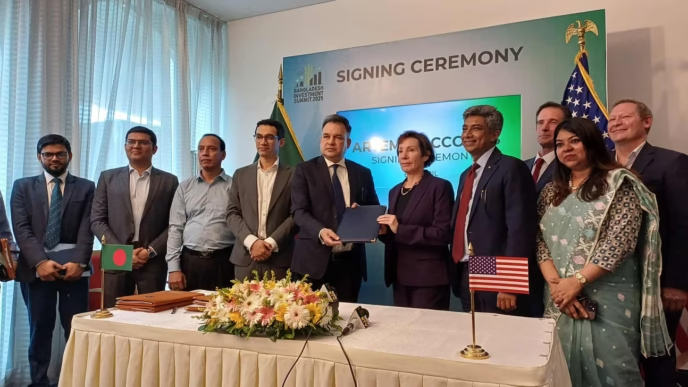The recent meeting between Muhammad Yunus and Narendra Modi in Bangkok has sparked what many are calling a long-anticipated diplomatic reset—yet few expected it to unfold this swiftly. On the surface, it appears that India is finally recognizing the interim government in Dhaka. But beneath the carefully staged handshake lies a web of contradictions, strategic hedging, and calculated diplomacy. This isn’t just about turning a page—it’s about rewriting the script.
From Denial to Dialogue
For nearly eight months, Indo-Bangladeshi relations have been stuck in an awkward limbo—punctuated only by a few symbolic gestures and cautious interactions. This meeting marks more than diplomatic engagement; it’s a quiet acknowledgment that reality has overtaken India’s long-held assumptions.
Still, Modi’s remarks carried an oddly performative tone. He spoke of democracy and inclusion—terms that ring hollow considering India’s track record of supporting electoral processes in Bangladesh that lacked both. From the uncontested 2014 election to the ballot-stuffing scandal of 2018 and the farcical 2024 vote, India has consistently backed Hasina. So when officials now speak of a “democratic and inclusive Bangladesh,” the natural question arises: since when?
The People vs. The Party
Modi emphasized that India is aligned with the people of Bangladesh, not any specific political party. It’s a commendable sentiment—but history suggests otherwise. India’s relationship with the Awami League has been more than diplomatic; it’s been strategic, ideological, and deeply personal.
Delhi has often chosen regime stability over public legitimacy. Is this new rhetoric genuine—or simply a diplomatic pivot to distance itself from Hasina without burning bridges, while leaving the door open to Yunus? Modi’s statement may be less about principle and more about preserving options.
Shelter as Strategy
Yunus’s request for Hasina’s extradition was bold—symbolizing a shift from transitional caretaker to assertive leadership. India’s cautious response, however—saying the request is “under consideration”—reveals a deeper game. Hasina, once a guest, now appears to be a bargaining chip.
By sheltering her, India retains strategic leverage. It’s a paradox: New Delhi claims to support peace and stability in Bangladesh, yet provides refuge to a figure accused of undermining both. If Yunus is serious about moving forward, he must tread carefully through this diplomatic maze.
Security Concerns or Political Theatre?
Minority rights and communal tensions featured heavily in the discussion—another area riddled with double meanings. India voiced concern over the treatment of Hindus in Bangladesh, but the timing feels politically convenient.
Yunus dismissed many of the allegations as overstated, accusing India of selective outrage. Under Hasina, systemic violence and suppression were tolerated by Delhi without much protest. So why the sudden concern? Is this about human rights—or political optics?
Border Killings and Hollow Empathy
Yunus’s emotional appeal to end the killings along the border struck a poignant chord. Modi’s response—reiterating that Indian forces act in “self-defence”—felt formulaic. Yet hundreds of civilians, many unarmed and inside Bangladeshi territory, have died under that same justification.
This isn’t just a security issue—it’s a matter of trust. India cannot preach partnership while continuing unilateral actions that damage the relationship at its core.
Behind the Optics: The Real Game
So, what does this meeting truly signify? It’s less of a breakthrough and more of a recalibration. India isn’t embracing the new Bangladesh—it’s adjusting to it. This is about strategic positioning, not newfound trust.
As Dhaka deepens its ties with China and even explores avenues with Pakistan, India can’t afford to remain on the sidelines. The meeting is a signal: Delhi is hedging its bets, seeking relevance in a shifting regional landscape.
In essence, this isn’t diplomacy driven by conviction—it’s diplomacy driven by necessity.















